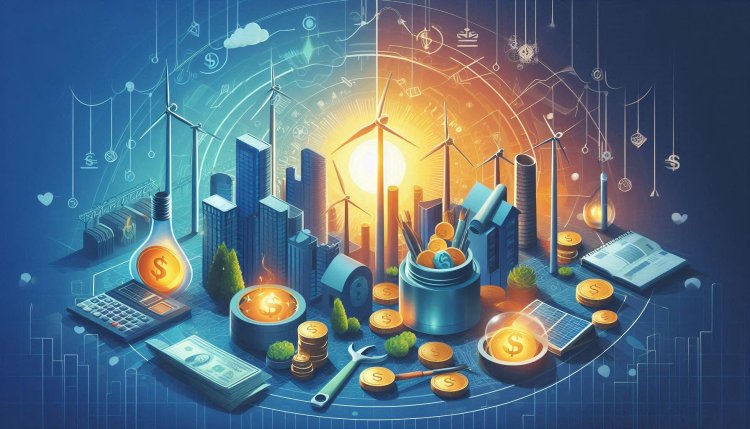The Role of Financial Instruments in Renewable Energy Investment
Discover how financial instruments drive renewable energy investment, from project financing to risk management strategies.

The Role of Financial Instruments in Renewable Energy Investment
Investment in renewable energy is crucial for addressing climate change and transitioning to a more sustainable energy system. However, the high upfront costs and long payback periods associated with renewable energy projects can pose challenges for investors. Financial instruments play a key role in mitigating these risks and attracting capital to the sector.
1. Debt Financing
Debt financing is one of the most common financial instruments used in renewable energy investment. By borrowing money from lenders, project developers can reduce their reliance on equity and leverage their investments. This can help lower the overall cost of capital and improve project economics. Debt financing can come from a variety of sources, including commercial banks, development banks, and specialized renewable energy funds.
2. Tax Incentives
Tax incentives are another important financial instrument that can help make renewable energy projects more attractive to investors. These incentives can take the form of tax credits, deductions, or exemptions, and can significantly reduce the tax liability of investors. In many countries, governments provide tax incentives to promote renewable energy development and meet climate targets.
3. Power Purchase Agreements (PPAs)
Power purchase agreements are contracts between renewable energy project developers and electricity buyers, such as utilities or corporate off-takers. PPAs provide a stable and predictable revenue stream for project developers, making it easier to secure financing for their projects. By guaranteeing a long-term market for the electricity generated, PPAs reduce the revenue risk associated with renewable energy projects.
4. Green Bonds
Green bonds are a type of fixed-income financial instrument that are specifically earmarked to fund environmentally friendly projects, including renewable energy. Investors purchase green bonds to support sustainable initiatives and earn a return on their investment. The proceeds from green bonds can be used to finance renewable energy projects, providing developers with access to a new source of capital.
5. Venture Capital and Private Equity
Venture capital and private equity firms play a crucial role in financing early-stage renewable energy projects. These investors provide equity financing to startups and emerging companies in the renewable energy sector, helping them scale up their operations and commercialize new technologies. Venture capital and private equity can be particularly important for driving innovation in the renewable energy industry.
6. Risk Mitigation Instruments
Risk mitigation instruments, such as guarantees and insurance products, can help reduce the perceived risks associated with renewable energy investments. For example, political risk insurance can protect investors against the risk of expropriation or political instability in the host country. By providing a safety net for investors, risk mitigation instruments can attract more capital to the renewable energy sector.
7. Crowdfunding
Crowdfunding platforms have emerged as a popular way to finance renewable energy projects, particularly at the community level. Individuals can contribute small amounts of money to support specific projects, allowing developers to raise capital from a large number of investors. Crowdfunding can democratize access to renewable energy investments and empower local communities to participate in the energy transition.
Conclusion
Financial instruments play a critical role in overcoming the barriers to renewable energy investment and accelerating the transition to a low-carbon economy. By providing developers with access to capital, reducing risks, and incentivizing investment, these instruments help drive the growth of the renewable energy sector. As governments, investors, and businesses continue to prioritize sustainability and climate action, the importance of financial instruments in renewable energy investment is only expected to grow.
What's Your Reaction?

















